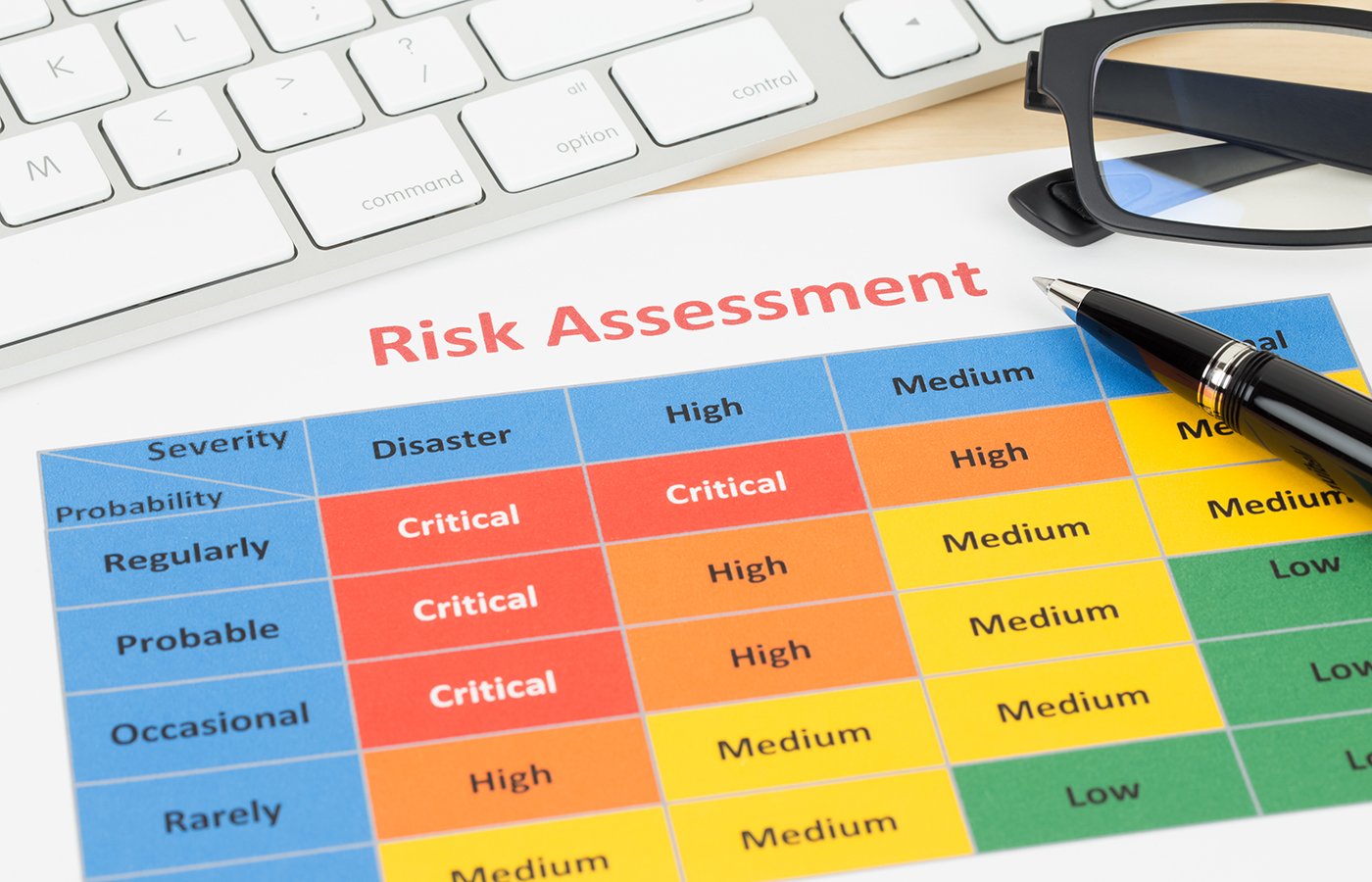Disruptive Technologies
Friday, December 17, 2021
By Jeffrey Kutler
A boom year in cryptocurrency trading and digital-asset development is nearing an end, and there is no let-up in the market’s allure for ex-regulators embracing both pro-innovation and legal-compliance principles.
Former agency chairs J. Christopher Giancarlo of the Commodity Futures Trading Commission and Jay Clayton of the Securities and Exchange Commission set an early pace. Both are now affiliated with New York law firms and active as crypto industry advisers and pundits: Giancarlo is, among other activities, advocating for a U.S. digital dollar; Clayton joined the advisory council of One River Digital Asset Management, which in May filed with the SEC to create a carbon-neutral bitcoin exchange-traded fund.
As the first year of President Joe Biden’s administration draws to a close, officials from the Donald Trump years and before are being pulled into the crypto-asset orbit.
Mark Wetjen, who was originally appointed to the CFTC by Barack Obama in 2011 and served for a time as acting chairman, in November joined FTX US, part of the high-flying multinational FTX platform headed by Sam Bankman-Fried, as head of policy and regulatory strategy.
Brian Quintenz, a CFTC commissioner since 2017 and sponsor of its Technology Advisory Committee, left after four years and in September was named an advisory partner on the extensive crypto team of Silicon Valley venture capital giant Andreessen Horowitz (a16z), joining, among others, William Hinman, former director of the SEC’s Division of Corporation Finance. Quintenz subsequently became a board member of event-trading prediction market Kalshi, which is CFTC-regulated.
Sitting CFTC member Dawn Stump, currently active through speeches and other statements in the still inconclusive dialogue on digital-asset regulation, confirmed on December 9 that she will step down next April and not seek another five-year term.
At the C-Level
Brian Brooks and Brett Redfearn were linked by coincidence. Both left government in 2021 – Brooks as acting Comptroller of the Currency, Redfearn aa director of the SEC’s Division of Trading and Markets. Both stayed only a few months in their new jobs, Brooks as chief executive officer of Binance.US, Redfearn in a capital markets capacity at the Coinbase exchange (where Brooks was chief legal officer before becoming first deputy comptroller in 2020).
By November, Brooks had landed at crypto technology and ecosystem company Bitfury Group as CEO; and Redfearn was senior strategic adviser to Carlos Domingo, CEO of digital-asset issuance and trading platform Securitize, and chairman of the company’s advisory board.
Already a familiar Washington presence, Brooks lifted Amsterdam-based Bitfury’s U.S. profile by appearing at a first-of-its-kind House Financial Services Committee digital assets hearing on December 8, alongside CEO counterparts Jeremy Allaire of Circle, FTX’s Bankman-Fried, Charles Cascarella of Paxos, Denelle Dixon of Stellar Development Foundation, and Alesia Haas of Coinbase Inc. (Haas is also chief financial officer of Coinbase Global.)
The demand for and recruitment of talent in the crypto and blockchain sector and, more broadly, fintech are global, as indicated in the expansion of the Bank for International Settlements’ Innovation Hub network, which had its New York opening on November 29; an ongoing hiring spree by Binance to bolster its legal and compliance bona fides in various jurisdictions; James Emmett, a former CEO of the Facebook-initiated Diem stablecoin project, becoming an Oliver Wyman senior adviser; and ex-U.K. Chancellor of the Exchequer Philip Hammond becoming senior adviser at Copper, a custody, prime brokerage and settlements player focused on the institutional market.
Derivatives Goal
FTX tied Mark Wetjen’s policy and public affairs role to its formation of FTX US Derivatives, which resulted from the company’s October acquisition of LedgerX, and with it CFTC supervision as a Designated Contract Market (DCM), Swap Execution Facility (SEF) and Derivatives Clearing Organization (DCO). FTX has also reportedly joined the Futures Industry Association and International Swaps and Derivatives Association.
Wetjen was on the LedgerX board of directors – a seat he retains under FTX ownership – while he was also serving as CEO of Miami International Holdings’ MIAX Futures.
Mark Wetjen
Wetjen came on board at a “pivotal moment for FTX US,” the organization’s president, Brett Harrison, said in a statement. “We’ve created FTX US Derivatives with the intention of becoming the first U.S.-regulated crypto exchange to provide crypto derivatives trading to our user base, and Mark’s experience and guidance will be instrumental in achieving this goal. We believe it’s incumbent upon industry leaders in this space to maintain transparency and cooperation with lawmakers and regulators, and we look forward to Mark’s stewardship of our regulatory strategy and communications.”
“The FTX Group has operations in and licenses from dozens of jurisdictions around the world, including here in the U.S.,” CEO Bankman-Fried stated in his December 8 House committee testimony. He included as an exhibit FTX’s proposal for “one primary market regulator with one rule book for spot and derivatives listings.”
Prior to the CFTC, and during the drafting of the 2010 Dodd-Frank Wall Street Reform and Consumer Protection Act, Wetjen was a senior Senate staffer and adviser to Democratic leader Harry Reid of Nevada. At FTX, Wetjen is expected to take the lead in communications with regulatory agencies and House and Senate committees while advising FTX on compliance standards and reporting operations.
A University of Iowa law graduate, Wetjen pointed to FTX US’s “strong record of product innovation combined with a healthy respect for following the rules to ensure fair and orderly markets while also protecting the consumer. I look forward to helping FTX US continue expanding its product offerings in that same manner, while also advancing the regulatory conversation of the crypto landscape on behalf of FTX US.”
“Part of the Conversation”
Introducing Brian Quintenz in an Andreessen Horowitz blog post, general partner Katie Haun said, “Our portfolio projects are innovating in ways previously unimagined, and so our investment in them must be more than just financial – we seek to provide them with a full suite of resources on their path to success.
“In our recent conversations with teams,” Haun continued, “it’s become apparent that regulatory concerns are top-of-mind. The founders and projects we work closely with recognize that the policy decisions made in Washington in the coming months and years will impact their work – and potentially their ability to exist and operate. And they want to be part of the conversation.”
In addition to Quintenz with his CFTC background and William Hinman from the SEC staff, the advisory experts in what Haun termed “a world-class support system when it comes to policy and regulatory matters” include Brent McIntosh a former Under Secretary of the Treasury for International Affairs who worked on a Financial Stability Board digital assets initiative.
Brian Quintenz
Haun described Quintenz as “one of the earliest leaders in Washington to recognize the inherent, intrinsic value of crypto. He was outspoken in his role at the CFTC, frequently calling on the global regulatory community to allow an innovation that promises to unlock freedom, wealth creation, and access to financial services for more people to flourish.”
With a Georgetown University MBA and financial markets background, Quintenz earlier in his career was an adviser to Congresswoman Deborah Pryce of Ohio. Asked in a Coindesk interview about the unsettled state of crypto regulation, Quintenz said, “I would like to see it do better. There’s been a turf battle among newly appointed heads of regulatory agencies. I’d like to see a more thoughtful, coordinated approach [and] would like to see Congress more engaged.”
Bitfury and Binance
An early bitcoin operation that has grown since 2011 into a comprehensive digital-asset infrastructure and solutions provider with a billion-dollar “unicorn” valuation, Bitfury Group hired Brian Brooks as it enters “the next phase in our evolution,” said founder Valery Vavilov. Now chairman and chief vision officer, Vavilov will work with CEO Brooks to “continue to execute Bitfury’s growth strategy and help businesses, governments, organizations and individuals leverage the blockchain to solve the most pressing challenges of today and tomorrow,” Vavilov said in his November announcement, citing Brooks’ “deep regulatory, digital asset and capital markets expertise.”
As Brooks put it, “Bitfury is an established leader in the digital asset industry, renowned for its sustained research and development efforts and best-in-class proprietary technologies. As the adoption of – and use cases for – bitcoin, other crypto assets and their underlying blockchains continues to accelerate worldwide, the company’s diversified portfolio has immense opportunity and is well positioned for long-term success. I look forward to working alongside Valery and Bitfury’s highly experienced leadership team to grow the Company’s core businesses and scale its portfolio of new innovations.”
Brian Brooks
Brooks has a University of Chicago law degree and served as managing partner of O’Melveny & Myers’ Washington office, in senior legal posts at Fannie Mae and Coinbase, and as vice chairman of OneWest Bank.
He attributed his August resignation from Binance.US to “differences over strategic direction,” but both during and since his short tenure there, Binance as a whole staffed up to address regulatory and compliance concerns. For example, global CEO Changpeng “CZ” Zhao in August recruited Richard Teng, formerly head of the Abu Dhabi Global Market regulatory authority and Singapore Exchange’s chief regulatory officer, as CEO of Binance Singapore – though Binance is withdrawing its local license application in the city-state.
Also in August, Binance named Greg Monahan, a former U.S. Treasury financial crime investigator, global money laundering reporting officer. In September, Aron Akbiyikian, a onetime detective who worked for digital-asset compliance and risk management specialist TRM Labs, was appointed director of audit and investigations; and in November, former U.S. Internal Revenue Service special agent Amjad Qaqish was named director of global suspicious activity reporting.
On December 16, Binance.US said it hired Sidney Majalya as its first chief risk officer. Most recently vice president, legal and chief compliance officer of Intel Corp., and in the Uber Technologies legal department before that, Majalya is a Columbia Law School graduate and was a U.S. Department of Justice Antitrust Division trial attorney from 2004 to 2014.
With Binance effectively frozen out of the U.K. by a Financial Conduct Authority assessment, CZ said in a December newspaper interview, “We’re making a number of very substantial changes in organizational structures, product offerings, our internal processes and the way we work with regulators. We want to continue to establish a presence in the U.K. and serve U.K. users in a fully licensed and fully compliant manner.”
Brooks, in his December 8 House testimony, urged lawmakers to take a balanced view of the risks inherent in legacy financial systems as well as new technologies: “Having issued almost $1 billion in civil money penalties against banks and bank executives during my tenure leading the Office of the Comptroller of the Currency, it is clear to me that the present financial system has plenty of examples of risks and costs and various forms of unsafe and unsound conduct. Shouldn’t we take seriously the possibility that algorithms and open-source software that take a measure of human error, greed, negligence, fraud, and bias out of the system might make the system better on net, even if there are some new risks that need to be examined and understood?”
Brooks also warned that a lack of regulatory clarity will hurt American competitiveness, and he sought to debunk allegations about the power drains and unsustainability of bitcoin mining: “The best data shows that bitcoin’s total global energy usage of about 188 terawatts is somewhat less than the total annual energy usage of Christmas lights (around 201 terawatts).” And that is a fraction of the “6,800 terawatts lost or wasted [annually] in the U.S.,” which bitcoin could potentially capture for more productive results.
From Coinbase to Securitize
Claiming a number of blockchain firsts as a fully digital securities issuance platform, obtaining SEC-registered transfer agent status in 2019, Securitize Inc. made two key leadership appointments in October: Brett Redfearn as senior strategic adviser to the CEO and advisory board chair; and Wilfred Daye as head of investment and asset management subsidiary Securitize Capital. Noting Daye’s “institutional experience in fintech, trading and portfolio management,” most recently as CEO of Enigma Securities, Securitize co-founder and CEO Carlos Domingo said it was in response to investor demand that “we launched our own cryptocurrency yield funds in August and plan to launch several new funds soon . . . We knew we needed a leader of Wilfred’s pedigree and experience to lead” the unit.
Regarding Redfearn, Domingo said: “When we founded Securitize four years ago, we knew the digitization and democratization of finance that could be achieved using blockchain was only possible if we built the company in accordance with the existing U.S. regulatory framework. Brett has dedicated his career to understanding, explaining, and shaping capital markets and the regulatory landscape in a way that is efficient, fair, and protects investors. As Securitize continues developing regulated, digitized financial products and trading of digital asset securities, our company and board will benefit tremendously from Brett’s perspective and guidance.”
Brett Redfearn
Redfearn, whose July resignation as Coinbase vice president of product, capital markets, was said to be related to a change of corporate strategy, joined the SEC in 2017 from the JPMorgan Chase & Co. Corporate and Investment Bank, where he was global head of market structure.
“Five years from now,” Domingo said, “investors will expect that share ownership and activity is traded and publicly recorded on a blockchain instead of the slower and less efficient traditional processes. We’re excited Brett sees the future as we do and that he has agreed to join our leadership team.”
The new director of the SEC Trading and Markets division is Haoxiang Zhu, effective December 10, with David Saltiel, the acting director in Redfearn’s place, being named a deputy. Zhu is the Gordon Y. Billard Professor of Management and Finance and associate professor of finance at the MIT Sloan School of Management, where SEC chair Gary Gensler, as a professor of the practice, taught fintech and blockchain courses. S.P. Kothari, Gordon Y. Billard Professor of Accounting and Finance at MIT, was SEC chief economist and director of the Division of Economic and Risk Analysis (DERA) from March 2019 until January 2021. (Wharton School professor Jessica Wachter became chief economist and DERA director in May.)
BIS Innovation Hub
The Basel, Switzerland-based Bank for International Settlements is delivering on its plan announced in 2019 to establish Innovation Hub centers in collaboration with central bank members. Headed by Benoît Coeuré, formerly of the European Central Bank executive board, the program officially launched the New York Innovation Center as a strategic partnership with the Federal Reserve Bank of New York.
“The partnership will support our analysis of digital currencies – including central bank digital currencies [CBDCs]; help to improve our current payment system – with a particular focus on making cross-border payments faster and less expensive; and it will provide new tools to aid our supervision of the financial system,” Federal Reserve chair Jerome Powell said at the November opening. “Linking up with the BIS in this way will enhance our ability to collaborate with central banks around the world and will ensure that the best and most up-to-date information, research, and practices are flowing freely. Since its inception in January 2020, I have served as head of the BIS Innovation Hub Advisory Committee and am very pleased that the Federal Reserve will be able to partner with the hub in this important way.”
Benoît Coeuré
The New York Fed revealed in July the selection of Per von Zelowitz as the center’s director. Most recently at PricewaterhouseCoopers, von Zelowitz was Financial Services Director of Banking Transformation and co-led the development and operation of the Banking & Lending Innovation Center. Before PwC, he was senior entrepreneur in residence at Citi Ventures and founding member of the D10X incubator.
Earlier in November, heads were named for hub centers in London, Stockholm and Toronto, effective early in 2022. They are, respectively: Francesca Hopwood Road, head of regulation technology and advanced analytics, U.K. Financial Conduct Authority; Beju Shah, special adviser for digital innovation, Bank of England; and Miguel Díaz, general director, payment systems and market infrastructures, Bank of Mexico.
“Between them,” Coeuré said, “they bring extensive and diverse technological and policy experience. They will be instrumental in catalyzing the vibrant innovation capacities of the hub's focus areas, which include CBDCs, next generation financial market infrastructures, suptech and regtech, open finance, green finance and cybersecurity.”
“Rare” Combination
James Emmett, who during 25 years with HSBC was chief executive of HSBC Bank plc and Europe, was tapped in September 2020 to be managing director and CEO of Diem Networks, the operating entity of the cryptocurrency association that Facebook founded, originally named Libra. Following what the Diem Association characterized as a “strategic shift to the United States,” dropping plans for a Swiss payment systems license and instead relying on California-chartered Silvergate Bank as stablecoin issuer, Emmett became and remains a Diem Networks non-executive director and senior adviser.
James Emmett
In November, Oliver Wyman in London said that Emmett was taking on a senior adviser role “at the intersection of finance, technology, regulation and law, with a particular focus on digital assets and blockchain platforms.”
“James’ experience as a practitioner in banking and in digital assets is rare in its combination,” stated Ugur Koyluoglu, the consulting firm’s global head of digital assets. “It will complement Oliver Wyman’s expertise in this dynamic and increasingly significant area of technology and financial services, enhancing our ability to support clients in designing and delivering their strategies.”
Said Emmett: “Oliver Wyman’s profound understanding of financial services and thought leadership on the impact of disruptive technology makes them a very natural partner for me to extend my own impact in this area.”
U.K. Booster
Copper, which bills itself and its “secure trading loop” as an “institutional gateway to digital asset investing,” made Philip Hammond (Lord Hammond of Runnymede) a senior adviser following a $75 million funding round in June and a U.S. office launch in August. Known for his support of fintech and start-up innovation while Chancellor of the Exchequer – under Prime Ministers David Cameron and Theresa May, he was also Foreign Secretary and Defense Secretary – Hammond “will focus on promoting the U.K. as a global leader in digital asset technology,” Copper said.
“Over the last 18 months, Copper has grown exponentially, now serving over 400 institutional clients,” said the company’s CEO, former asset management industry technology executive Dmitry Tokarev. “We would like to drive growth in our client base within a regulatory framework which will allow us to thrive globally from our London headquarters. With Lord Hammond’s expertise adding to the strength of our team, we look forward to growing Copper and further enhancing the U.K.’s digital-asset technology offering.”
Hammond called Copper, which Tokarev founded in 2018, “a true pioneer of digital-asset investment technology, innovating the highest standards of security and trading for financial institutions.
“But the really exciting opportunity lies in the application of this technology to revolutionize the way financial services are delivered. If we can bring together the best of Britain – entrepreneurs, industry, government, and regulators – to create and enable a blockchain-based ecosystem for financial services, we will secure the U.K.’s global leadership in this field for decades ahead.”
•Bylaws •Code of Conduct •Privacy Notice •Terms of Use © 2024 Global Association of Risk Professionals




